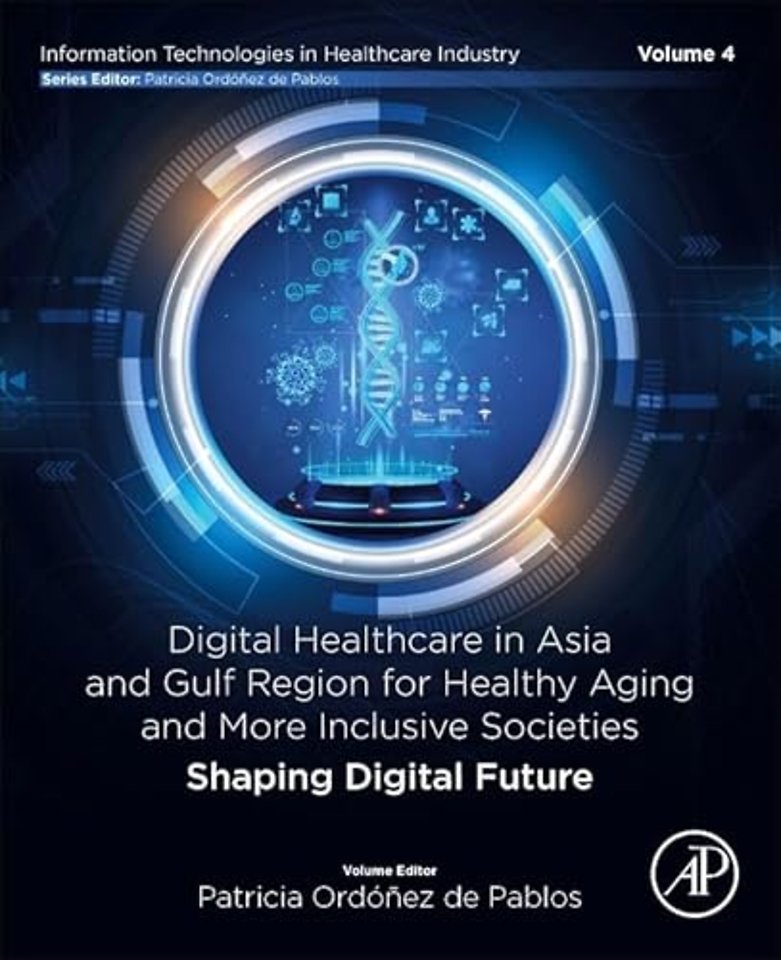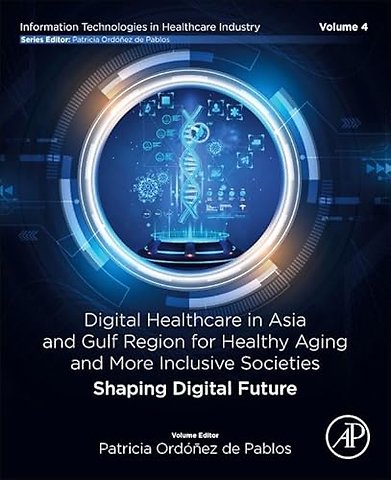Section I: Lessons from Covid-19 pandemic, healthcare services, and preparedness for the future<br>1. Can digital and social media change access to healthcare information?<br>Chintan B. Zinzuvadia, Abhishek Ghosh, Ramya Ravi and Manthan D. Janodia<br>2. Food safety and online food delivery apps post-COVID-19 in Greater Jakarta—Indonesia<br>Sevenpri Candra and Adinda Syifa Nurazizah<br>3. Technology for early detection and diagnosis of mental disorders: An evidence synthesis<br>Apurvakumar Pandya, Pragya Lodha and Ankita Gupta<br>4. Critical analysis of digital mental health applications for healthy aging<br>Pragya Lodha, Shreya Makhija and Avinash DeSousa<br>Section II: Healthcare systems and healthcare workforce: toward digital transformation<br>5. Opportunities and challenges facing the accounting information system in medical institutions when adopting Internet of Things<br>Omar Ikbal Tawfik and Hamada Elsaid Elmaasrawy<br>6. The future of digital health in the era of space internet<br>Bader H. Shirah and Marwa O. Zakour<br>7. Sleep stage classification using a convolutional neural network based on heart rate variability features<br>Geri Arisandi and Nico Surantha<br>8. Application of artificial intelligence and digitalization in medical education and various surgical specialities: concerns and prospects<br>Dharmendra Kumar Pipal, Vibha Rani Pipal, Rajendra Kumar Pipal and Seema Yadav<br>Section III: National healthcare visions and digital transformation of healthcare services and infrastructures in Asia<br>9. Telehealth services for aging patients in Pakistan: Understanding challenges and developing regionally relevant support through social policy<br>Sara Rizvi Jafree, Florian Fischer, Nadia Bukhari and Ammara Naveed<br>10. Digital health in ASEAN an exploratory analysis<br>Muhammad Anshari, Patricia Ordóñez de Pablos and Mohammad Nabil Almunawar<br>11. A comparative evaluation of the use of social media platforms by multinational and Indian pharmaceutical companies<br>Dominik Prager and Manthan D. Janodia<br>12. Digital transformation of myopic retinopathy: insights from the Asian perspective<br>Jie Xu, Hai-Long He, Xuan-Yu Chen and Zi-Bing Jin<br>13. Healthcare travel resilience through digital healthcare adoption: lessons from Malaysia during the COVID-19 pandemic<br>Brian Kee Mun Wong and Tatyana Bastrygina<br>14. AI-powered digital health: bridging the gap for elderly populations in the evolving healthcare ecosystem<br>Muhammad Anshari, Patricia Ordóñez de Pablos and Mohammad Nabil Almunawar<br>15. Digital transformation of healthcare services and infrastructure in Asia: the metaverse bound?<br>Brian Kee Mun Wong, Sivakumar Vengusamy and Clarice Sze Wee Chua<br>Section IV: National healthcare visions and digital transformation of healthcare services and infrastructures in gulf region<br>16. The role of big data in healthcare in Gulf region<br>Omar Ikbal Tawfik and Ahmad Hayek<br>17. Artificial intelligence and the delivery of patient-centered care in the Gulf region: navigating the ethical landscape<br>Adhari Al Zaabi and Aasim I. Padela<br>18. Ensuring governance for quality, safety, and efficiency of medicines in the state of Kuwait: a call for action<br>Ahmad Salman, Sungsoo Chun, Alyaa Mousa, Mariam Alsanafi, Zahra Alsairafi,<br>19. Telehealth: business models and commercialization<br>Farnia Velayati, Haleh Ayatollahi, Morteza Hemmat and Reza Dehghan<br>Section V: Trends and Implications for healthcare research agenda and policy<br>20. Healthcare transformed: a comprehensive survey of artificial intelligence trends in healthcare industries<br>A. Parveen and G. Kannan<br>21. The evolution and challenges of healthcare policy and research in the Middle East<br>Saadat M Alhashmi

